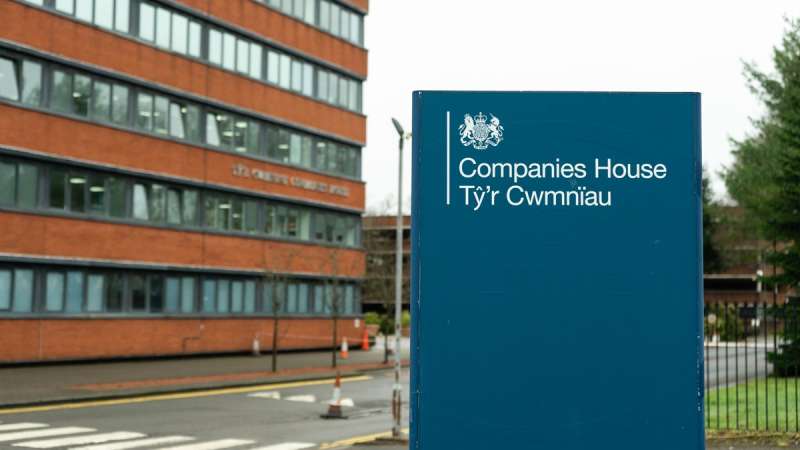Our Business Start-Up Service
Once a founder has made the commercial decision to start a new business, attention often turns to the legal steps required to bring this to fruition.
Our corporate lawyers understand that this can be a daunting task.
Having advised multiple entrepreneurs (including tech and university spin-outs) on the key legal considerations for new businesses, the corporate team are well placed to assist you in identifying and addressing your key legal concerns.
Our corporate solicitors work alongside our commercial, banking, employment and real estate teams to provide comprehensive advice to startups, addressing the important legal issues that are often faced by startup companies/ businesses.
Our experienced lawyers are additionally supported by our private client team, which provides specialist legal advice to new business founders in relation to their personal affairs (including wealth planning).
Engaging with customers and suppliers on the right terms from the outset is key to putting your new business on a sure footing.
Our commercial lawyers are able to advise on such terms and produce terms and conditions, commercial agreements, and licencing arrangements suitable for your intellectual property needs.
Structuring a Start Up
The structure of your business is vital to its success.
Owners of a new business will need to balance a range of factors, including tax, the level of personal liability they are willing to take for the debts and liabilities of the business and the planned or expected ownership and growth of the new business.
Our experienced startup lawyers are able to advise on the options available to structure your business.
Whilst this will often be a limited liability company that provides opportunities for future investment, our corporate solicitors can also advise on partnership and LLP structures.
If a limited liability company structure is chosen, our specialist lawyers can also draft and negotiate a suitable constitution for your company, including articles of association and a shareholders' agreement.
Why Work With Our Corporate Lawyers?
- We have been ranked as a Top Tier law firm by the Legal 500 for the last seven years.
- You will receive city-quality corporate law advice at regional prices.
- Price transparency - we provide our clients with an estimate at the outset of any piece of work with ongoing updates throughout the matter.
- Our 5 Corporate Partner led service ensures you receive the very best legal advice and commercially minded support.
- We have a large team with experience across a diverse variety of sectors, focused on achieving your objectives and hitting your deadlines.
- We are a full-service law firm operating from a one-site office, which means our teams communicate effectively and efficiently and our Corporate Lawyers can draw on support from other specialist lawyers such as property and employment lawyers.
- Our Corporate Solicitors use the latest technology to ensure that we are working as efficiently as possible and that geographical distance is no bar to us from providing you excellent client service.
- We were the winners of ‘Corporate Team of the Year 2021’ at the Manchester Legal Awards.
- Take a look at the Myerson Promise for further benefits of working with us here.
Funding a Start Up
There is usually a period of time when new businesses face the prospect of outgoings and costs vastly exceeding income as it develops products, services and brand recognition.
Short term funding is often a necessity to provide much needed working capital to pay employees, fund initial product development, purchase materials and begin advertising and promotion.
There are a number of funding options available to start-up businesses and our team can provide advice on funding options such as:
Loans
Debt funding is often the simplest initial source of seed funding to a new start up.
Loans may be advanced from the founders, their friends and family, or from third parties such as banks or other lenders.
Securing bank funding for a start-up is, however, more challenging.
The bank will require a business plan and supporting cash flow forecasts to demonstrate how your new business will be able to pay back the loan with interest.
Without a proven track record and few (if any) assets to offer as collateral, it is often difficult for start-ups to demonstrate this to a bank's satisfaction.
A loan may or may not require security - this could be a charge (usually in the form of a debenture or mortgage) over the assets of the company, including any real property or a personal guarantee by the shareholders or directors (or both).
Our banking solicitors are able to advise upon the various debt funding options available to your business, as well as negotiate loan facility agreements and associated security.
Equity Investment
Issuing new shares in your business is another way to raise funding and investment. Equity investment can be particularly advantageous from a tax perspective for investors owing to the Enterprise Investment Scheme (EIS) and Seed Enterprise Investment Scheme (SEIS), encouraging individuals to invest in small, higher-risk trading companies that may otherwise struggle to raise funding.
Equity investment of course needs to be balanced against the level of control, involvement or say that you are willing to give to early stage investors.
Whilst they often provide important business advice, input and connections, an investment round means diluting your personal holding of the business and potentially elements of control.
Potential sources for early-stage equity funding often include:
- Business Angels – wealthy individuals and entrepreneurs who invest in small businesses or start-up businesses;
- Venture Capitalists – organisations who invest money in a new business that they think will grow quickly with a view to making a profit on the sale of their shares;
- Crowdfunding – arranged via regulated entities, a large number of people will invest and pool smaller amounts that will be invested. Crowdfunding can also sometimes be used for debt funding.
Private equity investment is usually reserved for a later round of investment, as they will traditionally only invest in mature businesses, which require both income and capital returns from the start of their investment.
Our experienced startup lawyers can provide top-tier legal services and specialist legal advice to support your new business from the early stage and throughout.
Testimonials
Business Startup FAQs
Do you need a solicitor to set up a company?
While some aspects of setting up a business can be carried out by individuals within the company, it is advisable to hire experienced startup lawyers to ensure complex matters, such as the legal structure of the company or business, shareholders’ or partnership agreements are set up correctly and sufficiently.
As the business grows, there may be other areas, such as commercial T&Cs, GDPR compliance and required licences that should be handled by a professional lawyer to ensure your business is legally compliant with any regulations.
Myerson's full service law firm can assist any new business with a range of matters. We have employment, real estate, commercial, and intellectual property teams that aid the corporate solicitors with startup companies.
Meet Our Specialists
Home-grown or recruited from national, regional or City firms. Our specialists are experts in their fields and respected by their peers.
Contact Our Experts
You can contact our lawyers below if you have any more questions or want more information:










